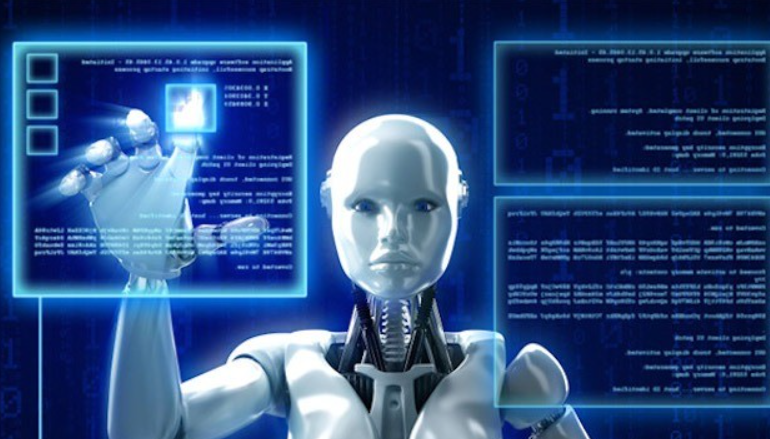The Future of Artificial Intelligence: What to Expect in the Next Decade

Introduction: The Expanding Horizon of AI
Artificial Intelligence (AI) is no longer a concept confined to the realm of science fiction. Over the past few decades, AI technologies have evolved at a rapid pace, leading to transformative changes across various sectors. As we look ahead to the next decade, it’s clear that AI will continue to revolutionize industries, redefine human interactions with machines, and open up new possibilities that we are only beginning to understand.
In this article, we’ll explore what the future of Artificial Intelligence holds, covering key developments, potential challenges, and the exciting innovations on the horizon.
1. AI Integration into Everyday Life
AI-Powered Smart Homes and Personal Assistants
In the next decade, AI will become more deeply integrated into our daily lives, particularly in the realm of smart homes and personal assistants. Devices powered by AI will work seamlessly together to improve comfort, efficiency, and security. Imagine smart kitchens that suggest recipes based on your preferences, or AI-powered systems that monitor your home’s energy usage and adjust heating, cooling, and lighting accordingly.
Voice-activated assistants like Amazon’s Alexa, Apple’s Siri, and Google Assistant will become more intuitive, understanding not just commands but context, emotions, and even preferences. The lines between physical and digital spaces will blur, making everyday interactions with technology smoother and more natural.
AI-Enhanced Personalization
Another significant area where AI will impact daily life is through personalization. AI systems will increasingly analyze vast amounts of data to tailor services to individual preferences. From personalized shopping experiences to customized healthcare plans, AI will deliver solutions that are uniquely suited to each person, increasing efficiency and satisfaction.
2. AI in Healthcare: Revolutionizing Medicine
AI-Driven Diagnostics and Treatment
The healthcare industry is set to experience a massive transformation due to AI over the next decade. AI algorithms will enable faster and more accurate diagnoses by analyzing medical data such as scans, lab results, and patient histories. These systems will assist doctors in identifying patterns and making predictions that are often difficult for humans to spot.
AI will also play a major role in personalized medicine. By leveraging genomic data and AI-driven analytics, doctors will be able to create customized treatment plans for patients, optimizing therapies and reducing side effects.
Robotics and Surgery
AI-powered robots will also revolutionize surgery. Robots, guided by AI, will assist surgeons in performing highly precise operations, leading to less invasive procedures, faster recovery times, and better overall patient outcomes. Additionally, AI will aid in the development of new medical devices, improving the quality of care and accessibility for patients around the world.
3. Autonomous Vehicles and Transportation
Self-Driving Cars: The Road Ahead
Self-driving cars have been a hot topic for a few years now, and the next decade will likely see them become a mainstream reality. Major players in the automotive industry, such as Tesla, Waymo, and Uber, are actively developing autonomous vehicles. These vehicles will use AI to interpret data from sensors, cameras, and maps to navigate roads safely without human intervention.
Beyond personal transportation, AI-powered systems will also transform public transit and logistics. Autonomous buses, trucks, and delivery vehicles will increase efficiency, reduce costs, and improve road safety. In time, these vehicles will likely change the way cities are structured, as smart transport systems reduce congestion and improve air quality.
AI-Driven Traffic Management Systems
AI will also revolutionize traffic management. With the ability to analyze real-time traffic data, AI will help cities develop more effective traffic flow systems. Smart traffic lights will be able to adjust in real time, reducing congestion and emissions while improving public safety.
4. AI in Business: A Game Changer for Enterprises
AI in Automation and Workforce Transformation
In the next decade, AI will continue to disrupt industries by automating routine tasks. While this will lead to greater operational efficiency, it will also result in significant changes in the workforce. Roles that involve repetitive tasks such as data entry or basic customer service will increasingly be handled by AI systems, allowing employees to focus on higher-value tasks.
For businesses, AI will unlock new opportunities to enhance decision-making. Predictive analytics, driven by AI, will help companies forecast trends, optimize supply chains, and improve customer experiences. AI-powered chatbots will also handle customer inquiries more efficiently, improving satisfaction and reducing wait times.
AI-Powered Data Analytics
Another exciting development in AI’s future is its ability to harness vast amounts of data for actionable insights. Businesses will use AI to analyze data faster and more accurately than human analysts could ever do, enabling them to make data-driven decisions in real time. This will enhance everything from marketing strategies to product development, making AI a vital tool for companies looking to stay ahead in a competitive market.
5. The Ethical Implications of AI
AI and Privacy Concerns
As AI continues to grow in influence, concerns about data privacy and security will become even more pronounced. The data required to train AI systems often includes sensitive personal information, raising questions about who owns that data and how it’s used. In the next decade, we can expect to see a significant push for stricter regulations surrounding data usage and privacy.
Bias and Fairness in AI Systems
AI systems are only as good as the data they are trained on, and biased or incomplete data can lead to unfair outcomes. Over the next decade, there will likely be a greater focus on creating transparent, accountable AI systems that are free from bias. Ensuring that AI technologies are developed ethically will be essential to maintaining public trust.
6. AI in Education: Enhancing Learning Experiences
Personalized Learning
AI is poised to transform education by providing personalized learning experiences. By analyzing student performance data, AI systems can identify strengths and weaknesses, tailoring lessons to meet individual needs. These AI-driven systems can adapt in real-time, providing students with more focused and engaging educational experiences.
Virtual Classrooms and AI Tutors
In addition to personalized learning, AI will make online education more accessible and interactive. Virtual classrooms powered by AI will offer immersive, interactive experiences that replicate in-person learning. AI tutors will also be able to provide one-on-one support, helping students to overcome challenges and master complex subjects.
7. AI and Creativity: A New Era of Art and Entertainment
AI-Generated Art and Music
The future of AI in the arts is incredibly exciting. We’re already seeing AI systems that can generate music, art, and even literature. In the next decade, AI will likely play a larger role in creative fields, assisting artists in generating new ideas, compositions, and designs.
AI-generated art could also lead to the democratization of creativity, allowing people with little technical skill to produce high-quality creative work. However, this will also raise questions about authorship, originality, and the role of human artists in a world where machines can create.
8. The Role of AI in Environmental Sustainability
AI for Climate Change and Sustainability
AI will be a key player in tackling global challenges like climate change. Through the analysis of environmental data, AI can predict weather patterns, track deforestation, and monitor pollution levels. It can also optimize the use of renewable energy by managing energy grids and improving energy efficiency.
AI-Driven Solutions for Conservation
AI will also support conservation efforts, such as protecting endangered species and preserving biodiversity. Machine learning models can identify patterns in ecosystems and predict the impact of human activity, guiding conservation policies and practices.
9. The Future of AI Research: Advancements on the Horizon
Quantum Computing and AI
Quantum computing holds immense potential for AI. In the next decade, breakthroughs in quantum computing could greatly accelerate AI’s capabilities. Quantum algorithms have the potential to process vast amounts of data far more efficiently than traditional computers, enabling AI to solve complex problems at unprecedented speeds.
General AI: The Holy Grail
While current AI systems are designed for specific tasks, there is ongoing research into creating Artificial General Intelligence (AGI), which could perform any intellectual task that a human can do. The next decade may see significant strides toward AGI, which could have profound implications for every aspect of society.
FAQs: Addressing Key Questions About the Future of AI
Q1: How will AI impact jobs in the future?
AI will automate certain tasks, leading to job displacement in some sectors. However, it will also create new opportunities in fields like AI development, robotics, and data science. Upskilling and reskilling will be essential for workers to thrive in the AI-powered economy.
Q2: Can AI ever surpass human intelligence?
AI is progressing rapidly, but we are still far from achieving Artificial General Intelligence (AGI). While AI can outperform humans in specific tasks, it currently lacks the broader cognitive abilities that humans possess.
Q3: Will AI be able to make ethical decisions?
AI systems can be designed to follow ethical guidelines, but ensuring that these systems make the right decisions in complex situations remains a challenge. Ongoing research will focus on creating more transparent, fair, and accountable AI systems.
Q4: What are the privacy risks associated with AI?
As AI collects vast amounts of personal data, there are risks to privacy. Stricter data regulations, transparent data usage policies, and enhanced security measures will be necessary to mitigate these risks.
Q5: How can AI help fight climate change?
AI can optimize energy consumption, predict weather patterns, and monitor environmental changes, contributing to more effective climate action. AI-powered systems can also support sustainability efforts by improving resource management.
Q6: How will AI change education?
AI will personalize learning experiences, adapt to individual student needs, and provide new ways to engage with educational content. It will also enable more accessible and flexible learning environments.
Conclusion: Embracing the Future of AI
The future of Artificial Intelligence is full of promise and potential. Over the next decade, AI will continue to transform industries, enhance our daily lives, and tackle some of the world’s most pressing challenges. However, with great power comes great responsibility, and it will be essential to address the ethical, social, and economic implications of AI to ensure its benefits are realized equitably.
As we look forward to the next decade, one thing is certain: AI will play an increasingly central role in shaping the world of tomorrow.



